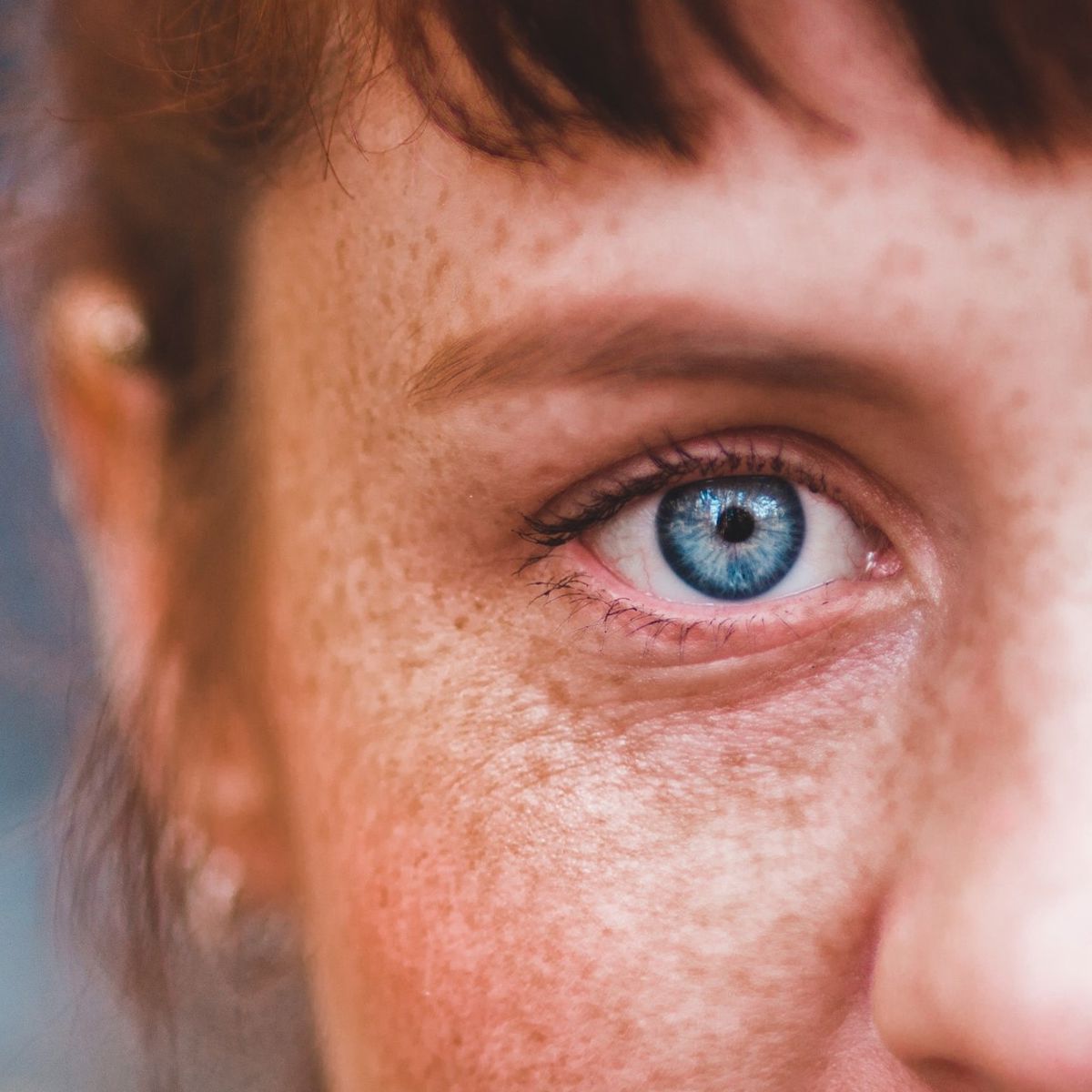Can I Believe That Something Might Exist Even if I Don’t Believe In It?

When I was an undergraduate student of psychology, I stumbled across the term “BIID – Body Integrity Identity Disorder”. Learning about it has been a chance encounter since, back then, the phenomenon had not been recognized by either of the international classification systems for medical conditions, namely the DSM (Diagnostic and Statistical Manual of Mental Disorders) and the ICD (International Classification of Diseases). In 2018, however, it entered the ICD-11 under the name of “Body Integrity Dysphoria” (BID).
BIID or BID describes a very rare condition in which “your mental body image doesn’t match your physical body.”
This could mean that the mental image of a person’s body does not include, for example, an arm, or a leg, or one’s eyes. Seeing one’s own reflection in the mirror through the very eyes that do not appear to belong to that body, feeling the sensations stemming from that alien arm or leg, causes a great deal of distress to those suffering from BIID. So much so that the people affected might desire to amputate or disable the respective body part. Since it poses a moral as well as a legal dilemma for doctors to help, people with BIID are left to either bear their condition forever or to try to attain mental and physical congruency by choosing dangerous means: intentionally hurting themselves in trying to get rid of the respective part of their body or its full functionality.
The reason why I got hooked on the topic of BIID is the interesting ethical debate it requires. On the one hand, you have medical professionals who, by Hippocratic Oath, are obliged to treat their patients to the best of their abilities but not to apply methods that are not helpful, or even harmful. For a surgeon willing to amputate a perfectly functional limb or another body part, dooming the patient to a life of physical obstacles, social disadvantages, and perhaps dependency could be an outrageous notion. For a psychiatrist wanting to pinpoint and treat the real origin of a condition, instead of blindly acting on the subjective needs of a patient – needs that might not even be present if the underlying issue was treated – is an understandable approach. On this side of the opinion spectrum, BIID might be viewed as a neurological issue that should not be treated by manipulating a person’s physical reality (e.g. by amputation).
On the other hand, though, you have human beings who have a right to live a life without suffering, to be taken seriously in their unique subjective experience, to be respected in their identity. One comparison that is quickly made when discussing BIID is with transgender individuals. Though not unanimously, in our society it is widely understood and accepted that people do change their physical appearances by means of medical intervention if their experienced gender identity does not match the physical attributes they were born with as well as the respective gender assignment at birth.
If it is ethically okay to insert breast implants or to construct a neophallus where a vulva had been, why is it so unthinkable to remove a leg?
Now, the answer to this question is manifold, for sure. And I want to stress that I do not intend to judge the matter of BI(I)D and how medical professionals ought to respond to it. The reason why I am using this example is to make tangible where an important revelation for me came from.
Back then, when I was researching and discussing the ethics of BI(I)D treatment, one aspect struck me most: The idea of wanting to be an amputee, living the life of a disabled person – by CHOICE (as if it was out of a flimsy idea, not a history of suffering) – is so incomprehensible for most of us that we cannot accept its validity.
I asked myself back then:
Do I have to believe in something for it to exist?
Should helping someone with a problem depend on me understanding the issue?
Can something be valid, even if I cannot see it?
Learning about this rare condition turned out to be a precious trigger of inner work for me. I came to accept the duality of subjective and objective reality.

There is a difference between what I believe and what I know is possible to exist.
I might fiercely believe something to be true. I do have my firm opinions sometimes. After all, thinking I know what’s right and what’s wrong, what I can expect and what I deem unlikely, what I believe is worth striving for and what I do not want for my life, provides me with guardrails, with orientation. It provides me with a sense of safety, consistency, and a foundation for decisions. Life cannot be built on the muddy grounds of all-is-possible and nothing-is-certain. We need our beliefs, our values, our categories, our boundaries, our likes and dislikes. Seeing the world only partially – our way, from our perspective – serves a purpose.
But just because we believe that something is true, it doesn’t mean it is. I know that now. I am deeply aware of the fact that things can be valid, even if I don’t see them, understand them, or believe in them.
I might dislike a person but I know that this person is not objectively unlikeable.
I might disagree with an opinion but I know that my disagreeing does not disprove it.
I might not believe in a god but I know that this does not mean this god does not exist.
I might not have a problem but that does not mean it does not affect another person.
I might be 100% certain of a fact but I could just be wrong.
Deep inside me, I KNOW that. And in many moments, I am capable of humbly admitting this while still firmly holding on to my beliefs at the same time. In other moments, you find me arguing as if my life depended on it (my ego’s life surely does), getting emotionally caught up in a conflict, and self-righteously believing that I can see the truth another person seems not to.
The tension between having my beliefs and, yet, knowing that my believing something does not make it universally true, is a contradiction – sure. But it’s not hypocrisy or confusion.
Why can it not exist simultaneously?
It is human. We human beings – because we aren’t all-knowing-and mighty gods – are entitled to having our own unique perspective on life, our own very limited piece of knowledge about the world. And I, as but one member of our species, accept that I need guardrails in life for my own sanity. I also accept that it doesn’t mean s*** what I believe. I have to choose one set of beliefs, so I choose one. I could easily have chosen another one – given a different upbringing, different experiences, taking a slightly different turn at any of the many small and big crossroads in my life. In fact, I can choose anew, at any moment. In the end, it does not matter.
I will never hold the ultimate proof in hand if god exists or not. My core values will never be superior to someone else’s, even if it feels so wrong to me when someone stomps their feet all over them. All that I know about the world will always be partial, biased, and childishly naïve, no matter how much I educate myself. I am just a tiny puzzle piece that has flaws and massive blind spots. I can’t even know what I don’t know, I just assume that it’s a lot…
In acknowledging that lies great power. For a person individually, and for society as a whole.

We live in a world that is socially structured by divisions – between rich and poor, white and black, left and right, young and old, queer and straight. Every day, at work, on TV, in the papers, we are confronted with how others view the world and cannot reconcile that with our own experiences. We are astonished, we get angry, we find it unthinkable how others speak and act, in opposition to all we hold dear and to be true.
Injustice, violence, and social conflict are based on not being able to see the validity of another person’s reality.
Is the answer to all conflict that we stop having an opinion, leaning on our beliefs, standing up for our values?
No.
Most likely, there is no such thing as a solution for all conflicts.
But it would ease many tensions, big or small, if we accepted that we can firmly believe something to be true, while at the same time knowing that there could be more to it.
We do not have to believe in something for it to exist. Helping someone with a problem should not depend on us understanding the issue. And something can be valid, even if I cannot see it.
Whether it be a friend who confesses their deep longing to sit in a wheelchair, a colleague with an opposing political view, or a person on the internet who says they have found their spiritual truth, no one forces you to understand, or support, or like, or accept that other person’s truth as yours. You are allowed to be appalled, or amused, or unmoved all you want. It is not a prerequisite to be free of any judgement in order to be a good person.
We get to be the opinionated, self-righteous idiots AND the wise, selfless saints – simultaneously. Isn’t that great? We only need to seize the opportunity to be both.
Next time you are really, reeeaaally sure about something,
choose actions that make space for the possibility that someone else is right as well.
photos (Pexels): Erik Mclean, ShotPot, Ron Lach (Pexels)
Subscribe
Login
0 Comments
Oldest
Newest
Most Voted
Inline Feedbacks
View all comments